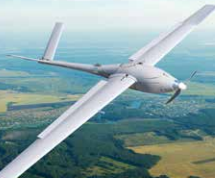The SESAR INVIRCAT research project has released deliverables available so far in its latest newsletter. The INVIRCAT (IFR RPAS Control in Airports and TMA) consortium is investigating innovative solutions for the safe and equal integration of remotely piloted aircraft systems in the terminal manoeuvring area and airport environments without entailing a significant impact on current airspace users. This process is guided by an innovation pipeline through which the European ATM community can explore new ideas, validate them with industrial partners and then demonstrate their viability for implementation.
The project has an overall duration of 30 months and is currently at month 25th. So far, 15 deliverables have been produced and approved by the SJU, out of the 20 deliverables to be released overall. Six of these deliverables are classified as public and available from the project website.
Deliverables include:
Current State-of-the-Art and regulatory basis
This deliverable provides the project state-of-the-art focusing on three main aspects of RPAS integration: technologies, human aspects and applicable rules and standards. It also includes information about other past and present activities carried out in Europe, and more specifically within the SESAR framework.
Use Cases Definition and Concept Outline
This deliverable describes the use cases and outlines the INVIRCAT concept for the integration of RPAS into the existing ATC procedures and infrastructures within TMAs and at airports under Instrument Flight Rules. It represents an initial step towards the creation of a Concept of Operations (CONOPS) for RPAS in the TMA and on airports.
Initial Concept of Operations
The definition of the CONOPS serves as a basis to investigate the influence of the integration of RPAS on ATC and other aircraft in the defined use case scenarios. Based on the results of the simulations the final CONOPS and a set of high level operational and technical requirements will be defined.
Preliminary Requirements Definition
This document sets the basis for stating what is initially required to comply with the objective of the INVIRCAT CONOPS and, after the simulations are completed and the results assessed, to update these requirements in order to have a final and complete set of valid requirements for the integration of IFR RPAS into the existing ATC procedures and infrastructures within TMA and at airports.
Exploratory Research Validation Report
This document summarises the validation context of the INVIRCAT project and presents the validation results of the simulation campaigns. It assesses the previously defined validation objectives qualitatively and quantitatively and summarises the results per identified key performance area in the project’s scope. Finally, the expected quality and limitations of the results is discussed.
Strategies on IFR RPAS Operations in the TMA: Alternatives, Requirements and Effects
This document summarises the key findings on alternatives and effects linked to IFR RPAS integration into the TMA in the course of the INVIRCAT project in the thematic topics of C2 link, communication link, ATOL systems, and taxi systems. An implementation recommendation is presented, based on timeframes from the SESAR Joint Undertaking ATM European Master Plan.
For more information visit:




